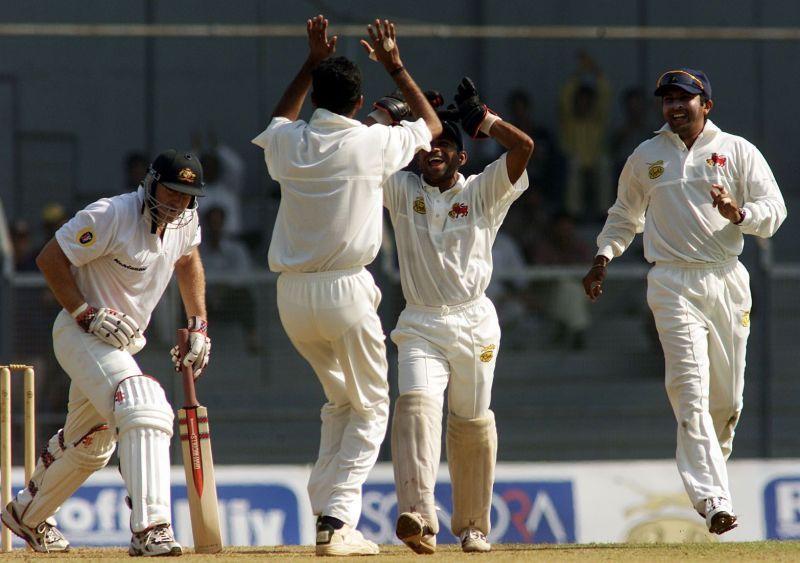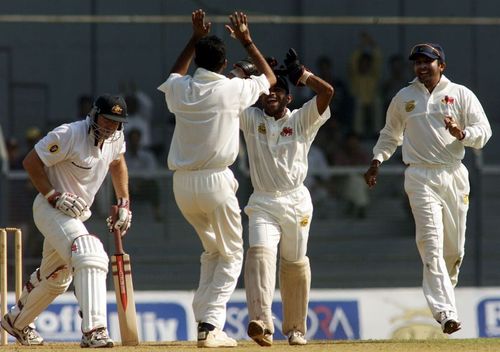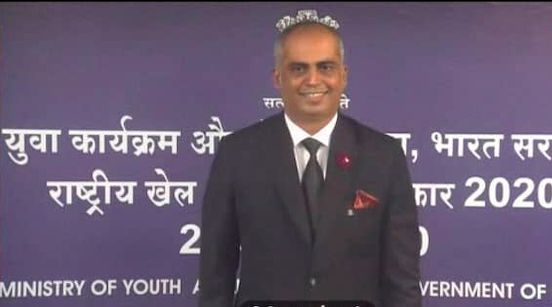
Nilesh Kulkarni: I began loving my Mondays

As per a Nielsen survey conducted across different countries, about 43% of people are interested in sports. However, only a minuscule fraction of this group end up playing at the highest level.
Take the case of India and cricket, out of a population of 136.64 crore, only eleven get to represent the national team and a few others play for their respective states. So what happens to the remaining people who like sports but were not good enough to make a career out of it?
Most of them end up taking jobs in other sectors which may or may not have been their first love. The result is that they end up hating Mondays. But what if you had an option to make a career in the sports industry even if you are not a sportsperson? Would that not be wonderful for millions of sports fans?
"Just look around and check how many of your family friends or colleagues have made a career in their liked profession."
That’s exactly what former cricketer Nilesh Kulkarni’s International Institute of Sports Management (IISM), based in Mumbai, has been striving to achieve for more than a decade now.
“If you have the opportunity to allow your child to make a career in his/her loved profession, then give them those wings," said Kulkarni about making a career in sports management.
Even today sports management is a new concept in India, and in terms of acceptance, it is still maturing. The biggest challenge, as per Kulkarni has been in convincing parents that sports management is a viable career option for their children.
Dealing with challenges is not something new for Kulkarni. As a cricketer, he has seen the highs and lows, from taking a wicket off the first delivery of his Test career to not getting an Indian Premier League (IPL) contract in 2008. In fact, not getting an IPL contract had triggered the idea of IISM.
“Paagal ho gaya kya tu?”
When he had first mooted the idea, a lot of his cricketer friends were shocked and had said, “Paagal ho gaya kya tu?" (Have you gone mad?). They would tell him that he had not played in the IPL and had not earned enough money.
Was he going to invest all the money that he had earned by playing for Mumbai and India? Additionally, there wasn’t much clarity in terms of the curriculum for sports management education in India.
Despite this, Kulkarni and his wife had a belief that this industry had a future. Of course, he had to do a lot of groundwork to give life to his dream. He actually traveled to places like Dubai, the United Kingdom and Singapore to understand how sports management is taught there.
Kulkarni has also been in touch with some Australian universities to be abreast of their best practices. Following this research, he sat down along with his team to Indianize the content and give it a local perspective.
“These are the things that make you believe that we are doing something right.”

Now, Kulkarni's hard work is bearing fruit. Last year, the institute was awarded the Rashtriya Khel Protsahan Puraskar by the President of India. Apart from the prestigious award, the biggest reward for him was that when he went to the award function with his wife, they were received by an alumnus of IISM who was working for the Sports Authority of India (SAI).
“These are the things that make you believe that we are doing something right,” stated a proud Kulkarni.
Yes, he does acknowledge that there is still a long way to go for sports management as a field, but the signs are encouraging. One may not see sports management professionals at the top level immediately, but they are there at the grassroots level.
“Say for cricket, it’s not as much what the BCCI gives in terms of job opportunities, but there are 38 state associations in India. Similarly, in Olympic sports, there are 47 federations with their state bodies," elaborated Kulkarni.
According to a FICCI report, there will be more than 25 lakh job opportunities not just in sports management, but in nutrition, training, and psychology among others in the next three to five years.
Even government entities have started accepting the existence of sports professionals who have acquired knowledge in management and business in the sports domain. Students from IISM have been placed overseas in bodies like the ICC in Dubai, Canada Leagues, Dubai Sports City, Oman Cricket etc.
While all the progress was happening, last year has been tough due to the COVID-19 pandemic. “It was challenging as fundamentally sports cannot be taught in a classroom,” remarked Kulkarni.
As far as the future is concerned, the focus of IISM is on further improving the content and publishing research reports which can be used as a reference point in the industry.
Today, Kulkarni is a satisfied man. He took a path rarely traversed by cricketers and is making a difference in the lives of aspiring professionals. As he said, “I began loving my Mondays as I am doing something that I love.”
May he and his IISM make more people love their Mondays!